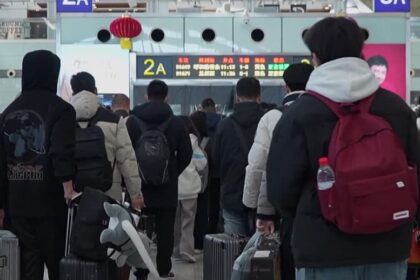Japan’s Toll System Crash: A Test of Civic Trust and Social Responsibility
In early April 2025, a rare technological failure on Japan’s highways set the stage for a remarkable display of civic virtue. For 38 hours, the country’s sophisticated electronic toll collection (ETC) system went offline, allowing hundreds of thousands of vehicles to pass through toll gates without paying. Yet, in a move that captured global attention, more than 24,000 Japanese drivers voluntarily paid their tolls online after the fact. This incident not only highlighted the technical vulnerabilities of modern infrastructure but also underscored the deep-rooted culture of honesty and social trust that defines Japanese society.
- Japan’s Toll System Crash: A Test of Civic Trust and Social Responsibility
- What Happened: The 38-Hour ETC System Outage
- Official Response: Trust Over Enforcement
- Why Did So Many People Pay Voluntarily?
- Technical Lessons: Infrastructure Vulnerabilities and Modernization
- Public Reaction: Pride, Praise, and Reflection
- Broader Implications: What Can the World Learn?
- In Summary
What Happened: The 38-Hour ETC System Outage
Japan’s expressways are among the busiest and most technologically advanced in the world. The ETC system, which enables wireless, automatic toll payments as vehicles pass through gates, is a cornerstone of this efficiency. On April 8, 2025, at around 12:30 a.m., the ETC system suffered a major malfunction during a software update intended to prepare for upcoming discounted late-night tolls. The outage affected 106 toll gates on the Tomei and Chuo Expressways, key arteries connecting Tokyo with surrounding prefectures.
With the system unable to read ETC cards, Central Nippon Expressway Co (NEXCO Central), the operator, faced a dilemma: risk massive traffic jams by closing the gates or let vehicles pass freely. Opting for the latter, NEXCO Central lifted all barriers, allowing an estimated 920,000 ETC-equipped cars to travel without immediate payment over the next 38 hours.
How the System Normally Works
Under normal circumstances, drivers slow down at toll gates, where their ETC cards are scanned wirelessly. The system deducts the appropriate fee, and the gate opens automatically. This seamless process is designed to keep traffic moving and minimize human error or fraud. The 2025 outage was unprecedented in its scale and duration, exposing the system’s reliance on uninterrupted digital infrastructure.
Official Response: Trust Over Enforcement
Rather than resorting to punitive measures or stationing personnel at every toll booth, NEXCO Central made a simple request: drivers who used the expressways during the outage should pay their tolls later online. The company provided instructions for manual payment, including how to calculate the correct fee based on travel routes and how to transfer funds electronically. To ease the process, NEXCO Central covered any associated bank fees.
By 10 p.m. on April 8, just hours after the outage began, the company had already received payment offers from about 24,000 drivers. This number grew steadily in the days that followed, reflecting a widespread willingness to comply with the honor system.
Waiving and Refunding: A Policy Shift
Initially, NEXCO Central maintained that drivers were still required to pay the full toll amount, as system malfunctions were not covered by any exemption clause in the ETC terms of service. However, by May, the company announced it would waive tolls for vehicles that passed through during the system failure and refund those who had already paid. This decision was partly pragmatic—identifying and collecting from every non-payer would have been a logistical nightmare—but it also reinforced the company’s trust-based approach.
Why Did So Many People Pay Voluntarily?
The voluntary payments made by over 24,000 drivers became a talking point across Japanese and international media. In many countries, such a system failure might have led to widespread non-compliance and lost revenue. In Japan, however, the public response was overwhelmingly positive, with thousands choosing to pay even when there was little chance of being caught if they did not.
The Role of Social Trust and Civic Duty
Experts attribute this behavior to Japan’s high levels of social cohesion, strong civic education, and a deeply ingrained sense of duty toward society. The concept of giri (obligation) and the importance of maintaining harmony within the community are central to Japanese culture. These values manifest in everyday actions, from returning lost wallets to following rules even when no one is watching.
As one commentator on social media put it, “In Japan, we do the right thing not because we fear punishment, but because we believe it’s our responsibility as members of society.”
This ethos is reinforced by Japan’s education system, which emphasizes group responsibility and respect for rules from an early age. The result is a high-trust society where individuals are expected to act with integrity, and institutions can rely on voluntary compliance in times of crisis.
Comparisons With Other Countries
The incident sparked global admiration and discussion, with hashtags like #JapanHonesty trending on social media platforms. Commentators contrasted Japan’s response with what might happen elsewhere, where similar system failures could lead to chaos, opportunism, or even violence. The Japanese example was held up as a model of how civic trust can serve as a social asset, supporting resilience and cooperation during unexpected disruptions.
Technical Lessons: Infrastructure Vulnerabilities and Modernization
While the focus of public discussion was on the social response, the incident also exposed vulnerabilities in Japan’s infrastructure. The ETC system’s failure was traced to a botched software update, highlighting the risks associated with increasingly complex digital systems. In response, authorities announced a $200 million modernization plan to upgrade hardware, improve cybersecurity, and introduce more robust backup protocols.
Experts warn that as societies become more reliant on automated systems, the potential impact of technical failures grows. Ensuring redundancy, regular maintenance, and clear contingency plans will be essential to prevent similar incidents in the future.
Could All Drivers Be Tracked Down?
In theory, NEXCO Central could have used security camera footage to identify non-payers, but with nearly a million vehicles passing through during the outage, this would have been a monumental task. The company made it clear that it had no intention of pursuing legal action or aggressively tracking down every driver. Instead, the emphasis remained on voluntary compliance and mutual trust.
Public Reaction: Pride, Praise, and Reflection
The story of the toll system crash and the subsequent wave of voluntary payments resonated deeply with the Japanese public. Social media was flooded with messages of pride and admiration, both from within Japan and abroad. Many saw the incident as a testament to the country’s unique social contract, where collective responsibility and mutual respect are the norm rather than the exception.
One Facebook user wrote, “This is why Japan is special. Even when no one is watching, people do the right thing. It’s something the world can learn from.”
At the same time, some commentators noted that the 24,000 voluntary payments represented only a small fraction of the estimated 920,000 vehicles that used the expressways during the outage. While this does not diminish the significance of the gesture, it serves as a reminder that no society is perfect, and even in Japan, not everyone chose to pay.
Media and International Attention
News outlets around the world covered the story, often focusing on the contrast between Japan’s high-trust society and the more skeptical, enforcement-driven approaches seen elsewhere. The incident became a case study in leadership built on confidence rather than coercion, with officials choosing to trust the public rather than impose strict controls.
Broader Implications: What Can the World Learn?
The 2025 toll system crash offers valuable lessons for policymakers, business leaders, and citizens worldwide. It demonstrates that social trust is not just a cultural curiosity but a practical asset that can help societies weather crises and adapt to unforeseen challenges. When institutions trust their citizens—and citizens trust each other—cooperation and resilience become possible even in the absence of strict enforcement.
For countries seeking to build similar levels of civic responsibility, the Japanese example suggests that trust must be cultivated over time through education, transparent governance, and consistent reinforcement of shared values. Quick fixes or top-down mandates are unlikely to produce the same results.
In Summary
- Japan’s electronic toll collection system crashed for 38 hours in April 2025, affecting 106 toll gates on major expressways.
- Officials allowed vehicles to pass freely and asked drivers to pay their tolls later online, relying on voluntary compliance.
- Over 24,000 drivers voluntarily paid their tolls, reflecting Japan’s strong culture of civic duty and social trust.
- The incident drew global admiration and highlighted the practical benefits of a high-trust society.
- Authorities later waived tolls for all affected vehicles and refunded those who had already paid, emphasizing trust over enforcement.
- The outage exposed vulnerabilities in digital infrastructure, prompting a $200 million modernization plan.
- The story serves as a powerful example of how social trust can support resilience and cooperation during crises.











